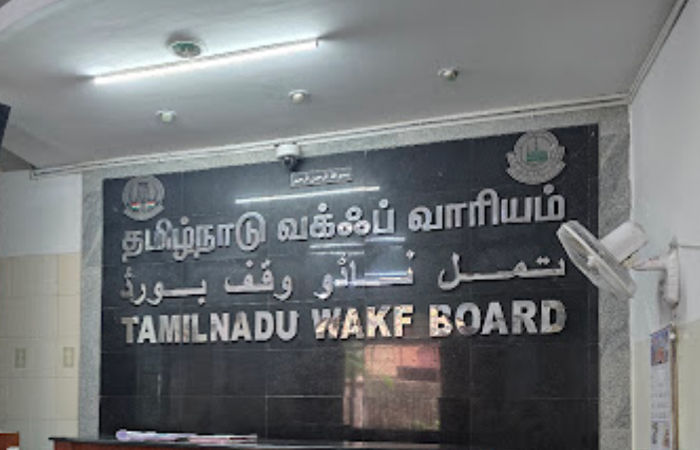
Wakf Board Amendment Bill: The central government is preparing to bring a bill in the Parliament to curb the unlimited powers of the Waqf Board. In the revised bill of the Center, the role of women in the Waqf Board will be special. This bill will curb the power of the Waqf to declare any land as its property and occupy it. The Muslim Personal Law Board is strongly opposing this proposal of the Central Government.
The reason behind the central government bringing a revised bill in the Wakf Board is that many cases of misuse of the Wakf Act have come to light. Tamil Nadu farmer Rajagopal cannot sell his mortgaged land because the Wakf Board claims that the entire village (Thiruchenthurai) belongs to them. It has money.
what is the whole matter
The Waqf Board has claimed ownership of the land of the 1500-year-old Manendiyavalli Chandrashekhar Swamy temple in Tiruchenthurai, a village in Tiruchi district of Tamil Nadu. They have 369 acres of land in and around the temple in the village. While living here, Rajagopal is trying to sell his 1.2 acres of land located in the village to someone else, but the registrar office found out that this land does not belong to him but to the Tamil Nadu Waqf Board. Rajagopal was asked to bring an NOC from the Waqf Board.
This claim has also upset the farmers and other residents of the village, because not just one farmer but all the people living in the village have claimed to have the land and houses of the Waqf Board. There is also a 1500-year-old Hindu temple in the village. Which has also been claimed by the religious board to be 1400 years old, which is ridiculous.
Registrar Rajagopal Asar said, Tamil Nadu Wakf Board has sent a 250-page letter to the Deed Department. In which any transaction in this village will be done only with the No Objection Letter.
18 claims on village land
The Waqf Board has claimed the land of 18 villages in Tamil Nadu. The 389 acres of land in these villages belongs to the Waqf Board. Which was handed over by the government on the basis of a survey in 1954. The Waqf Board prepared a 220-page document and submitted it to the sub-registrar office. Therefore, the farmers cannot sell the land.
Another case
, The power of the Waqf was seen in Jathlana village in Yamunanagar district of Haryana, when the Waqf claimed the land of the Gurudwara. There is no history of any Muslim population or mosque on this land.
, In November, 2021, Surat Municipal Corporation headquarters at Mughalsara declared the property as Waqf. It is argued that during the reign of Shah Jahan, this property was donated by the emperor to his daughter as Waqf property. Therefore this claim can be justified even after 400 years.
, In 2018, the Sunni Waqf Board told the Supreme Court that the Taj Mahal is owned by God and for practical purposes, it should be listed as the property of the Sunni Waqf Board. When the Supreme Court ordered the production of Shah Jahan's signed documents, the organisation claimed that the monument belonged to the Almighty, and that it did not have any signed documents but should be entitled to the property.
What is Waqf?
Waqf is derived from the Arabic word waqfah, which means to stop. Waqf refers to properties dedicated specifically for religious or charitable purposes under Islamic law. It is a type of charitable arrangement in Islam. Waqf is property that is donated by the followers of Islam. It can be both movable and immovable. It is said that, since this donated property is handed over from the owner to God, that status becomes irrevocable.
 look news india
look news india
